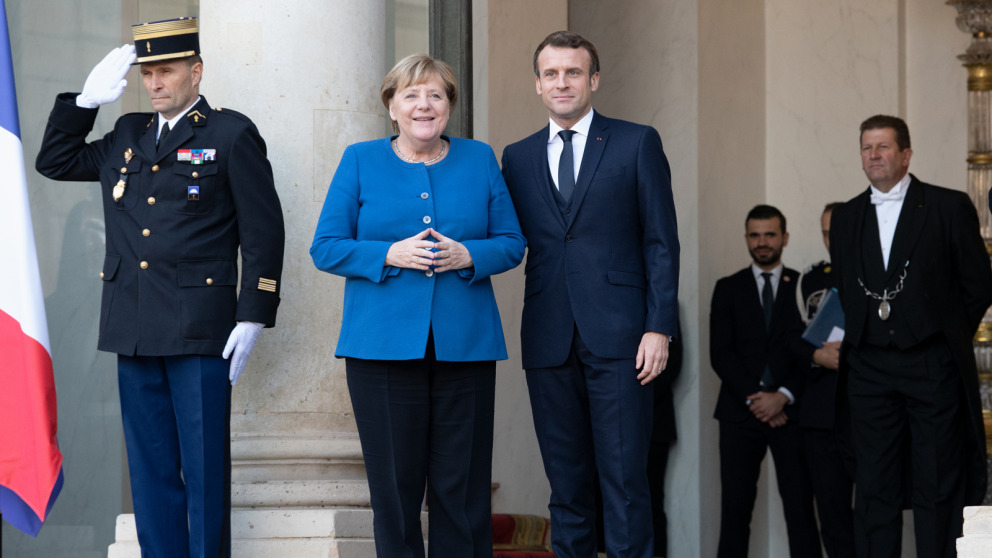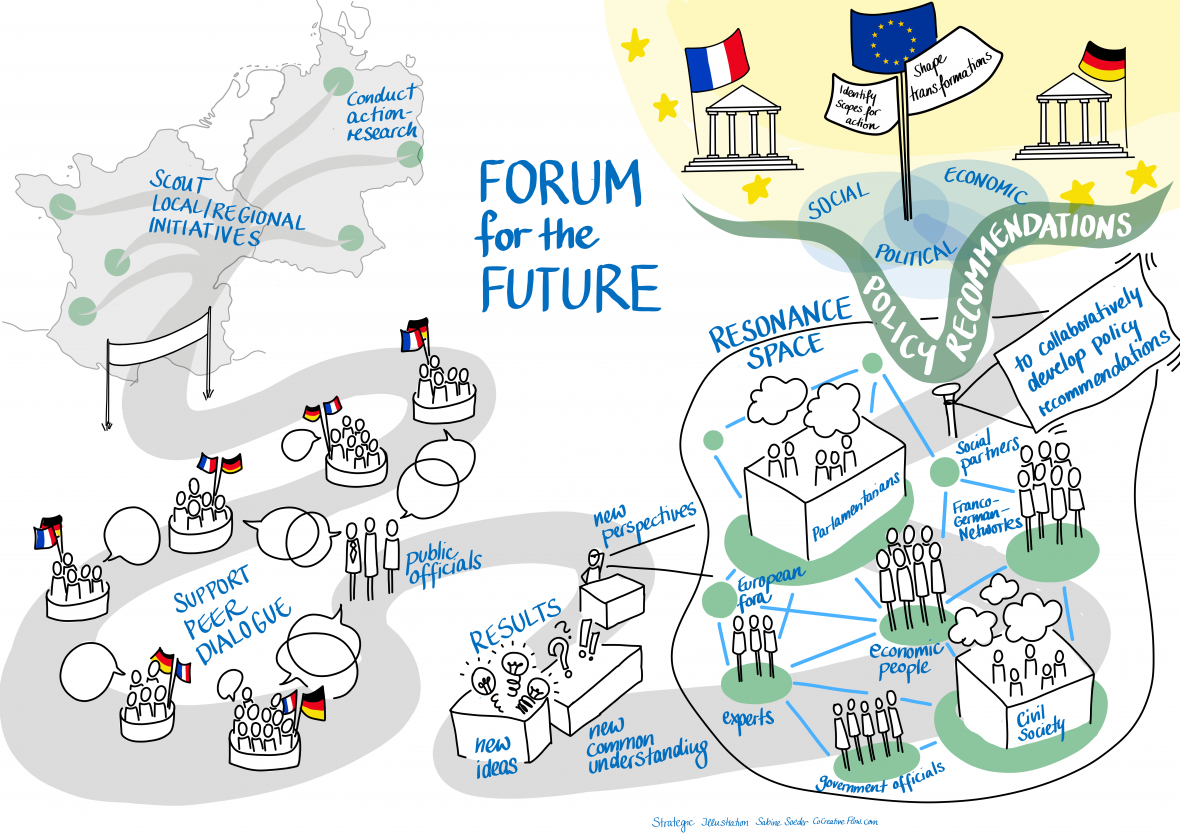Franco-German Forum for the Future
Duration

Established in 2019, the Franco-German Forum for the Future works to strengthen socio-ecological transformations in both countries. The Forum cooperates with local government across a range of topics, including: local food systems, the mobility transition, urban greening, public participation, and the energy transition.
Communities across Europe are facing similar challenges: How can we make our towns and cities climate neutral by 2035? How can we create and protect community spaces that serve the common good? And how can citizens participate in the search for solutions? The Franco-German Forum for the Future was established in 2019 to help communities in Germany and France develop sustainable visions for the future. The project conducts research in municipalities and regions and brings local stakeholders together to facilitate mutual learning. Coordination offices for the Forum are hosted by the government's policy analysis institute France Stratégie and in Germany at the RIFS.
Transdisciplinary research
The transdisciplinary and co-creative transformation research undertaken by the Forum for the Future stands in the scientific tradition of the RIFS. The Forum cooperates with partners in science, political institutions, public administration, civil society, and the business community to understand sustainability challenges and develop potential solutions. It works in thematic cycles of 12 to 18 months that are based on the United Nations 2030 Agenda for Sustainable Development.
Visions of the future - grounded in local and regional innovations
The Forum for the Future applies a participatory, bottom-up approach in its activities. Researchers with the Forum draw on qualitative interviews and observations to analyse how local and regional actors implement their transformation projects. These studies provide a detailed understanding of the opportunities and constraints for transformations at the local level. The bilateral exchange facilitated by the Forum enables stakeholders in Germany and France to compare municipal policy and practices and learn from each other, transferring solutions from one country to the other. The two countries' different systems provide a fruitful opportunity to reflect on the conditions and opportunities for action. Findings from the Forum's research are published in factsheets. Peer dialogues are a key instrument in the Forum's toolbox and provide opportunities to identify, explore and understand local solutions. The Forum also organises and hosts various events to further facilitate knowledge transfer.
Policy recommendations for governments in both countries
The Franco-German Forum for the Future develops actionable policy recommendations for the French and German governments. These recommendations inspire local politicians and officials by providing examples of best practice and formulating concrete proposals for local government and communities. They also serve to inform policymakers at the national level by highlighting local challenges and possible solutions at the national level. The Forum develops its recommendations in a collaborative process spanning around 18 months and in collaboration with over 60 local partners and experts from academia, public administration, business and civil society. Interdisciplinary workshops - the so-called Franco-German Resonance Rooms - lie at the heart of this process.
Further information:
Our website
Newsletter: df-zukunftswerk.eu/newsletter
Follow the Franco-German Forum for the Future on LinkedIn
- Newsletter A propos #20
- Newsletter A propos #19
- Newsletter A propos #18
- Newsletter A propos #17
- Newsletter A propos #16
- Newsletter A propos #15
- Newsletter A propos #14
- Newsletter A propos #13
- Newsletter A propos #12
- Newsletter A propos #11
- Newsletter A propos #10
- Newsletter A propos #9
- Newsletter A propos #8
- Newsletter A propos #7
- Newsletter A propos #6
- Newsletter A propos #5




